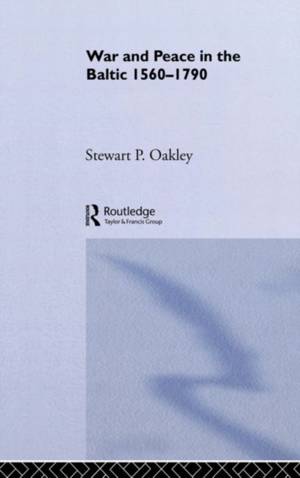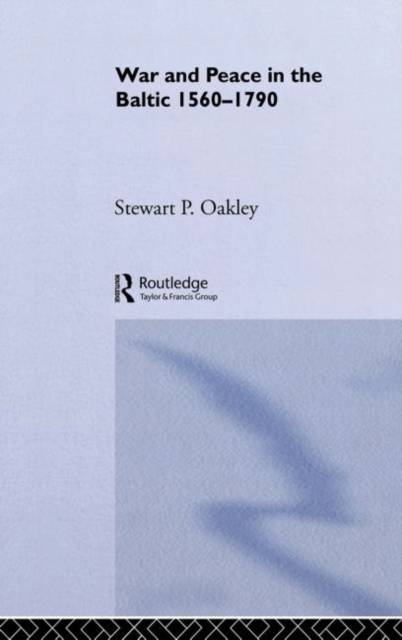
Door een staking bij bpost kan je online bestelling op dit moment iets langer onderweg zijn dan voorzien. Dringend iets nodig? Onze winkels ontvangen jou met open armen!
- Afhalen na 1 uur in een winkel met voorraad
- Gratis thuislevering in België vanaf € 30
- Ruim aanbod met 7 miljoen producten
Door een staking bij bpost kan je online bestelling op dit moment iets langer onderweg zijn dan voorzien. Dringend iets nodig? Onze winkels ontvangen jou met open armen!
- Afhalen na 1 uur in een winkel met voorraad
- Gratis thuislevering in België vanaf € 30
- Ruim aanbod met 7 miljoen producten
Zoeken
€ 90,45
+ 180 punten
Omschrijving
From the middle of the sixteenth century to the end of the eighteenth cetury the Baltic sea was the scene of frequent conflicts between the powers that surrounded it. As the fortunes in the struggle changed, so did the composition of opposing alliances and the identity of the leading participants. Not only were the littoral states concerned by the outcome; other European states were anxious thoughout the period with what went on in the Baltic, where the emergence of one dominant power could be potentially dangerous and where many had important commercial interests. Stewart Oakley makes clear the causes and course of the conflicts and explains the varying fortunes of the participants. It traces the emergence of Sweden, poor as it was in resources, as the leading power in the area in the early seventeenth century, the early unsuccessful attempts by the Muscovite state to break through to the Sea, the eventual collapse of Sweden's `empire' at the beginning of the eighteenth century and final emergence of Russia as the leading player on the stage. The main part of the work ends with the failure of Sweden's final attempt to regain something of its former status. The subsequent fortunes of the area are described briefly.
Specificaties
Betrokkenen
- Auteur(s):
- Uitgeverij:
Inhoud
- Aantal bladzijden:
- 240
- Taal:
- Engels
- Reeks:
Eigenschappen
- Productcode (EAN):
- 9780415513173
- Verschijningsdatum:
- 7/11/2011
- Uitvoering:
- Paperback
- Formaat:
- Trade paperback (VS)
- Afmetingen:
- 140 mm x 216 mm
- Gewicht:
- 285 g

Alleen bij Standaard Boekhandel
+ 180 punten op je klantenkaart van Standaard Boekhandel
Beoordelingen
We publiceren alleen reviews die voldoen aan de voorwaarden voor reviews. Bekijk onze voorwaarden voor reviews.











